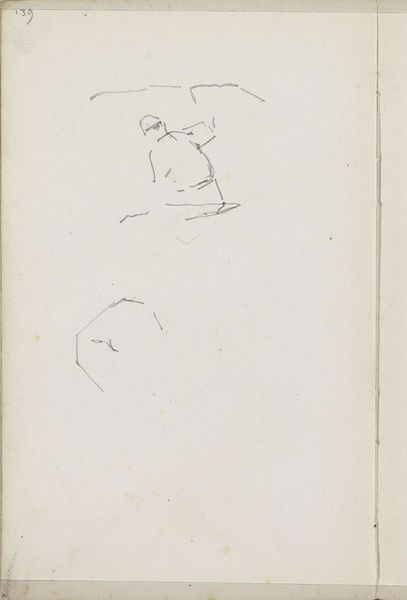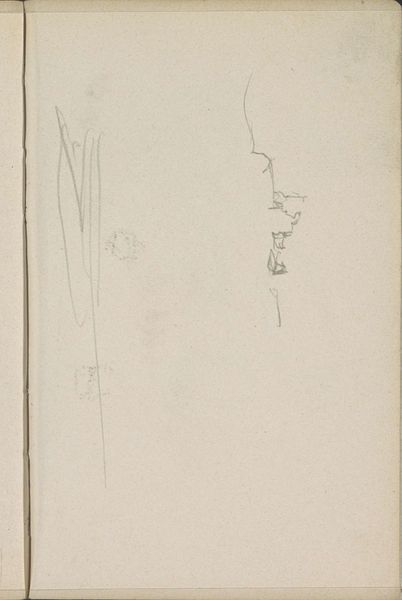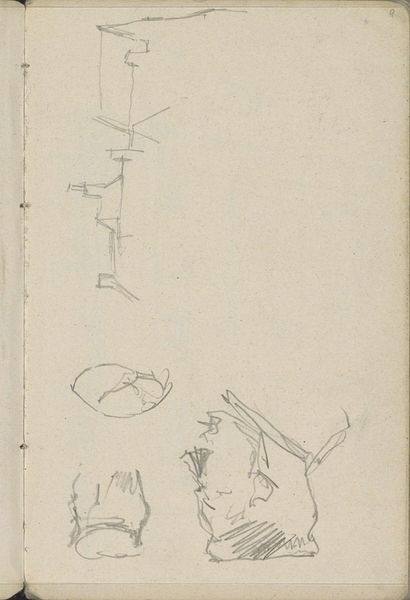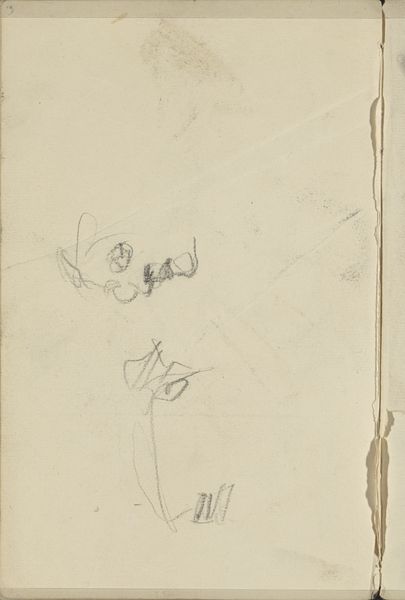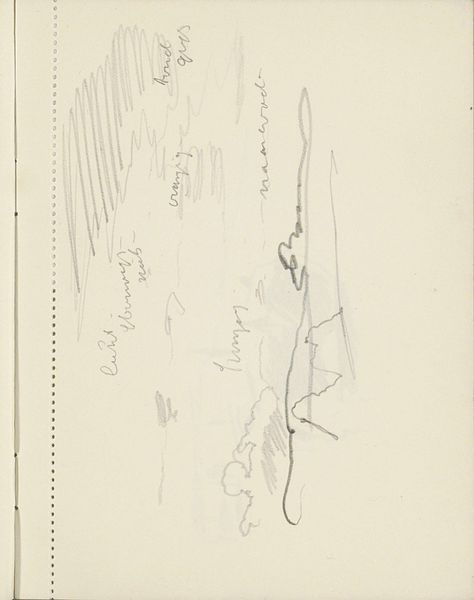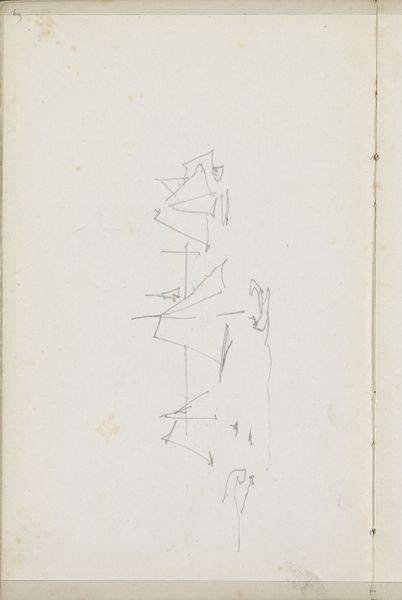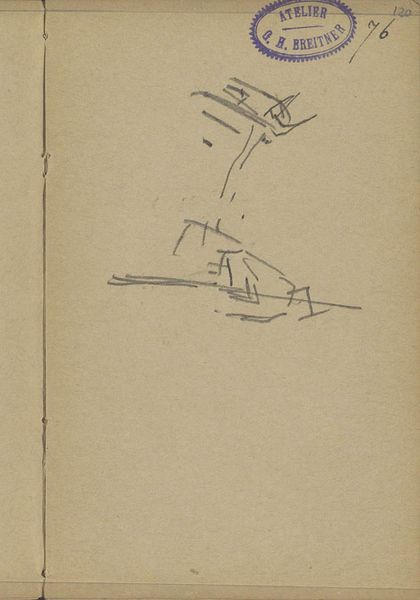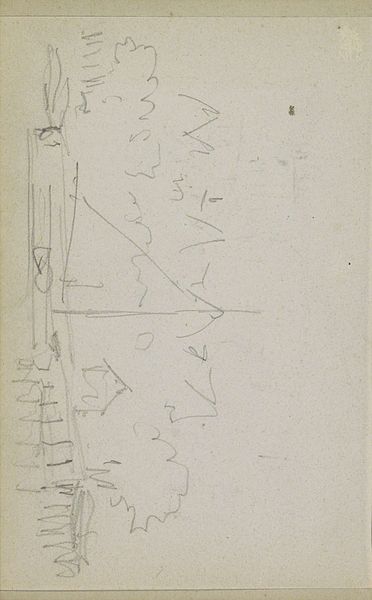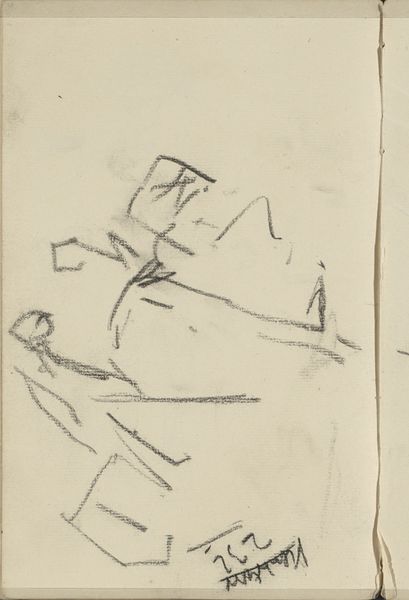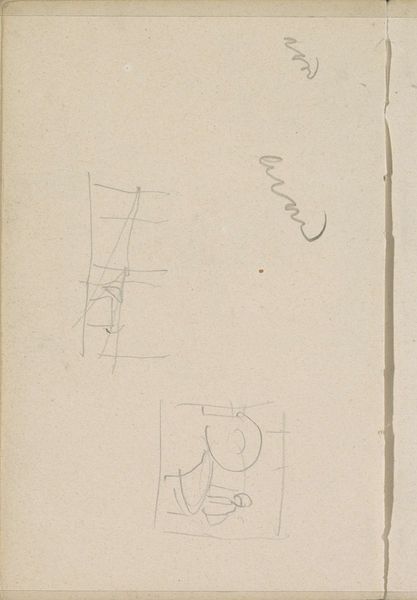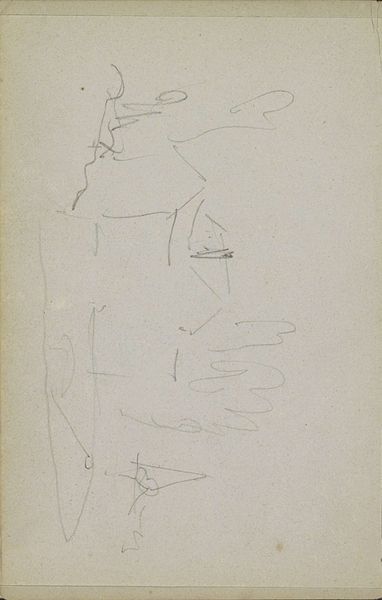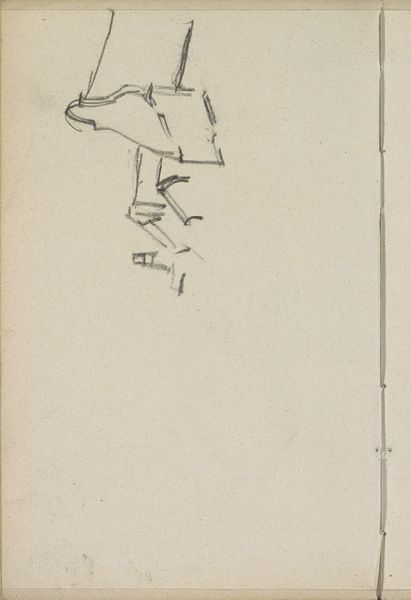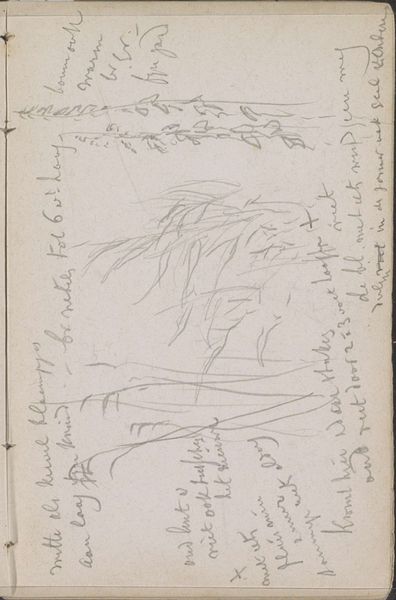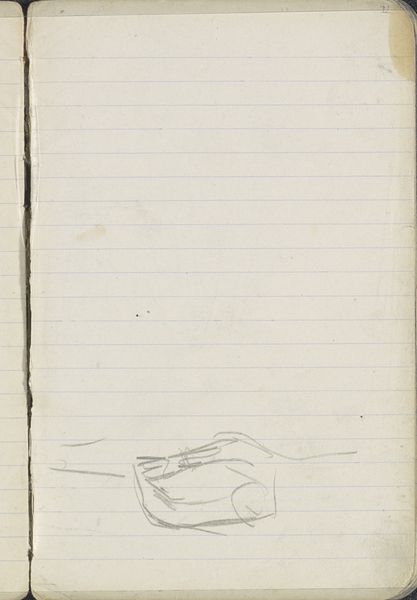
drawing, pencil
#
drawing
#
figuration
#
pencil
#
horse
Copyright: Rijks Museum: Open Domain
Editor: Here we have George Hendrik Breitner's "Studie, mogelijk van een paard", created in 1917 using pencil on paper. It looks like a very quick sketch, almost like a fleeting thought. What do you see in this piece, especially given its minimalist nature? Curator: What strikes me is how even a seemingly simple sketch can reflect broader societal dynamics. Horses, historically symbols of power and the aristocracy, were also integral to the labor force, particularly in 1917, during a period of immense social upheaval. Breitner, known for documenting working-class life, potentially captures the multifaceted role of the horse at that intersection. Do you think the drawing style itself reflects any of that tension? Editor: I suppose the rushed lines could convey a sense of urgency or even the instability of the era? Curator: Precisely. And considering Breitner’s broader body of work, which often focused on marginalized communities, is it possible that this sketch is not just about the horse itself, but also about the socio-economic context surrounding it? Editor: That's a perspective I hadn't considered. It makes you wonder about the unseen stories linked to this animal during that time. Were horses perhaps being repurposed or treated differently because of the war effort? Curator: Absolutely. This small sketch opens up a whole world of inquiry into the relationship between humans, animals, and the political climate. How does that impact your reading of the artwork? Editor: I'll definitely look at Breitner's other works and the historical context of 1917 to consider how those influences might have shaped the drawing, as well as my perspective of the piece. It definitely prompts more research! Curator: Exactly! Seeing art as enmeshed with history helps us challenge our assumptions.
Comments
No comments
Be the first to comment and join the conversation on the ultimate creative platform.
